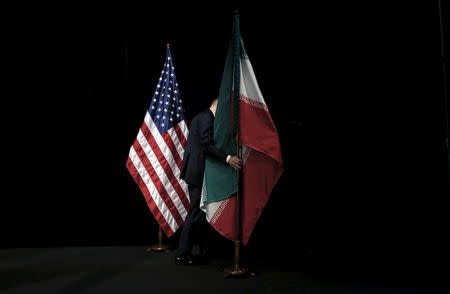After Iran deal, U.S. overtures to Gulf easier than to Israel

By Phil Stewart WASHINGTON (Reuters) - U.S. President Barack Obama may find Gulf allies more receptive than Israel to his offer to "double down" on security cooperation in the immediate aftermath of this week's Iran nuclear deal, even though concerns run deep in both camps. In an effort to soothe the anxiety of its main Middle East allies, Obama is dispatching Defence Secretary Ash Carter to both Israel and the Gulf next week to reassure them of U.S. security commitments. Israeli Prime Minister Benjamin Netanyahu, who has publicly admonished the deal, rebuffed Obama's personal offer for "intensive" security discussions about the way forward, a senior administration official said. "(The Israeli leadership) have made clear privately and publicly that they do not want to engage in this conversation at this juncture," the official told Reuters. The agreement is a landmark achievement for Obama, who has made outreach to America’s enemies a hallmark of his presidency. But Iran is also the predominant Shi'ite Muslim power, hostile both to Israel and to Washington's Sunni Muslim-ruled Arab friends, particularly Saudi Arabia. Critics say the deal contains loopholes, especially in inspection procedures that Iran could exploit, and will provide Tehran with an infusion of unfrozen assets to fund its proxies in sectarian conflicts from Syria to Iraq to Yemen. Offering a hint of his message to allies, Carter said in a statement about the Iran deal that the United States stood ready to "check Iranian malign influence." One U.S. official acknowledged that Saudi Arabia has privately voiced deep concerns following the accord. Saudi Arabia's Prince Bandar bin Sultan, a former head of the kingdom's intelligence services, cautioned in a newspaper opinion piece on Thursday that Iran's nuclear deal would allow it to "wreak havoc in the region." But Saudi Arabia's Foreign Minister Adel al-Jubeir said after talks with Secretary of State John Kerry in Washington on Thursday that they had discussed ways to implement "the understandings" reached at a Camp David summit held in May between Obama and Gulf leaders. A U.S. defence official said Carter was expected to work on advancing the Camp David initiatives during the trip, including in missile defence, cyber and maritime security. No new weapons deals were expected to be announced. Mustafa Alani, an Iraqi security analyst with close ties to Saudi Arabia's Interior Ministry, said there was "deep worry" about Iranian missile capabilities among Gulf Arab states, and the Iran nuclear deal had done nothing to allay it. Bruce Riedel, director of the Brookings Institution think tank's Intelligence Project, said the United States had helped secure critical Saudi support by backing its war on Houthi fighters in Yemen. "The Pentagon has already given Riyadh what it wants - a blank check in Yemen," Riedel said. Washington's supply of advanced arms to Gulf Arab states is a delicate balancing act, because of its long-standing commitment to maintain Israel's regional military supremacy. During a June visit to Israel, General Martin Dempsey cited discussions about bolstering Israel's integrated air and missile defence system, its cyber defences and maritime security. The United States and Israel have also been quietly negotiating a new programme of U.S. defence aid to Israel once the current, $3 billion a year expires in 2017. Reuters has reported that a new package of aid may see an increase over the previous 10-year deal with Israel. But Netanyahu has sought to play down any perception his government was acquiescing to the nuclear agreement in exchange for increased defence backing from Washington. Yuval Steinitz, the Israeli cabinet minister responsible for the Iran nuclear file, has brushed off questions about the kind of weaponry and military equipment Israel hoped to get from the U.S. following the Iran deal. "We are very grateful for the assistance we get from the United States," said Steinitz. "But I think it's wrong to use the word compensation because there is no real compensation for a nuclear threat." (Additional reporting by William Maclean in Dubai and Dan Williams in Jerusalem; editing by Stuart Grudgings)

